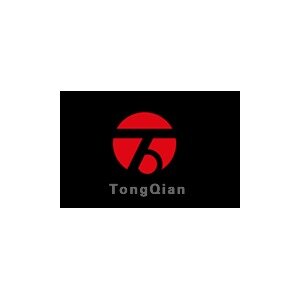Best Housing, Construction & Development Lawyers in China
Share your needs with us, get contacted by law firms.
Free. Takes 2 min.
Free Guide to Hiring a Real Estate Lawyer
Or refine your search by selecting a city:
List of the best lawyers in China
About Housing, Construction & Development Law in China
Housing, Construction & Development law in China is a comprehensive field that governs the rights and responsibilities related to real estate, housing, urban planning, and construction activities. This sector has witnessed significant growth since China's economic reform era, with rapid urbanization driving the expansion of real estate markets. The regulatory framework is designed to manage land use, building standards, safety, and environmental impact. This is overseen by a combination of national legislation and local regulations, ensuring systematic urban development and property management.
Why You May Need a Lawyer
Legal assistance may be necessary in several situations within the field of Housing, Construction & Development in China:
- Property Transactions: When purchasing or selling property, legal guidance is crucial to navigate complex contracts and regulatory requirements.
- Dispute Resolution: Conflicts with landlords, tenants, contractors, or developers may require legal intervention to mediate or litigate disputes.
- Regulatory Compliance: Ensuring compliance with construction regulations and zoning laws can prevent future legal issues or financial penalties.
- Contract Drafting: Legal expertise is beneficial for drafting and reviewing contracts related to projects to avoid ambiguous terms and potential disputes.
- Land Use Planning: Legal advice is essential for navigating the complexities of land use, especially in urban development projects.
Local Laws Overview
Key aspects of local laws in China relevant to Housing, Construction & Development include:
- Property Law: Governs the ownership, transfer, and use of property, ensuring rights are protected and responsibilities fulfilled.
- Urban and Rural Planning Law: Regulates urban development and rural land use, balancing economic growth with environmental conservation.
- Building Regulations: Sets standards for construction quality, safety, and environmental impact to ensure sustainable development.
- Contract Law: Provides frameworks for legal agreements in construction, outlining obligations and remedies for breaches.
- Land Administration Law: Controls land registration, use, and transfer, overseeing land market transactions and allocation.
Frequently Asked Questions
What is the process for buying a property in China as a foreigner?
Foreigners can purchase property in China for residential use, subject to local government policies and restrictions such as a single property purchase rule and proof of residency.
What are the typical steps in a construction project in China?
Construction projects generally involve project approval, land use rights acquisition, design planning, obtaining permits, engaging contractors, and adhering to regulatory inspections.
How does contract law affect construction projects?
Contract law dictates the terms of agreements between parties, including project timelines, payment schedules, and responsibilities, allowing legal recourse for non-compliance.
What should I consider regarding building safety standards?
Ensuring compliance with China’s safety standards for buildings is essential to avoid legal issues and potential hazards, often requiring certified inspections and approvals.
How are land use decisions regulated in China?
Land use in China is regulated through a system of zoning, permits, and plans as part of the national urban and rural planning policies to ensure development aligns with broader economic goals.
Can property rights be co-owned in China?
Yes, co-ownership of property is possible, and legal documentation such as a co-ownership agreement is recommended to outline each party's rights and responsibilities.
What legal conflicts commonly arise in the housing sector?
Common issues include disputes over property boundaries, breaches of contract, delays in construction, and disagreements regarding property maintenance or improvements.
How do I handle a dispute regarding construction defects?
It’s advisable to consult a legal professional to assess the situation, collect evidence, and either negotiate a settlement with the contractor or pursue litigation if necessary.
What is involved in property lease agreements in China?
Lease agreements must be detailed, covering aspects like lease term, rent, repair responsibilities, and renewal options, and must comply with property leasing regulations.
How are environmental regulations applied in real estate development?
Developers must conduct environmental impact assessments and comply with national and local ecological regulations to minimize the environmental footprint of projects.
Additional Resources
Consider reaching out to the following resources for further assistance:
- Ministry of Housing and Urban-Rural Development (MOHURD): The national body overseeing housing policies, construction regulations, and urban planning.
- Local Real Estate Bureaus: Provide guidance and services related to property transactions and development within specific regions.
- China International Economic and Trade Arbitration Commission (CIETAC): Offers dispute resolution services, particularly in construction and real estate sectors.
- International Law Firms: Many have specialized departments focused on Chinese real estate, providing comprehensive legal support.
- Research Institutes: Organizations such as the China Institute of Real Estate Appraisers can offer insights and data pertinent to development projects.
Next Steps
If you require legal assistance in Housing, Construction & Development, follow these steps:
- Identify the specific legal issue or query you need assistance with.
- Research and contact professional legal services with expertise in Chinese property law.
- Prepare relevant documents and information to facilitate a thorough initial consultation.
- Engage with a trusted legal professional to help navigate your case or questions.
- Follow any provided legal advice carefully to ensure compliance and protect your rights throughout the process.
Lawzana helps you find the best lawyers and law firms in China through a curated and pre-screened list of qualified legal professionals. Our platform offers rankings and detailed profiles of attorneys and law firms, allowing you to compare based on practice areas, including Housing, Construction & Development, experience, and client feedback.
Each profile includes a description of the firm's areas of practice, client reviews, team members and partners, year of establishment, spoken languages, office locations, contact information, social media presence, and any published articles or resources. Most firms on our platform speak English and are experienced in both local and international legal matters.
Get a quote from top-rated law firms in China — quickly, securely, and without unnecessary hassle.
Disclaimer:
The information provided on this page is for general informational purposes only and does not constitute legal advice. While we strive to ensure the accuracy and relevance of the content, legal information may change over time, and interpretations of the law can vary. You should always consult with a qualified legal professional for advice specific to your situation.
We disclaim all liability for actions taken or not taken based on the content of this page. If you believe any information is incorrect or outdated, please contact us, and we will review and update it where appropriate.
Browse housing, construction & development law firms by city in China
Refine your search by selecting a city.














